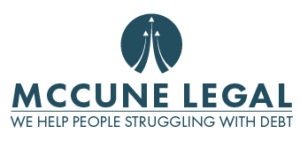Making the decision to file for bankruptcy is not easy. A lot of time and thought goes into it in order to determine whether or not it’s the right option for you. And once you’ve decided bankruptcy truly is the best course of action, you have to determine which kind of bankruptcy to file.
Chapter 7 and Chapter 13 are the two most common types of bankruptcy. However, they come with their own sets of pros and cons. Here are three reasons why Chapter 13 bankruptcy would likely be the best choice for a debtor.
Reason #1 - Not eligible for chapter 7 bankruptcy
In some instances where chapter 7 bankruptcy is the top choice, you may not be eligible to file based on the following criteria:
You filed for a chapter 7 bankruptcy in the last 8 years
AND/OR
The average of your monthly income in the previous 6 months is higher than the median income for the same-sized household in your state.
If either of these reasons eliminates chapter 7 as an option, chapter 13 is an extremely appealing alternative.
Reason #2 - A better fit for your financial situation
Every individual has their own unique set of financial struggles and stresses, which means that bankruptcy is not a one-size-fits-all type of situation. Depending on your circumstances, it is likely that filing for chapter 13 would turn out to be a wise decision. Here are some instances where chapter 13 happens to be the answer to your debt problems.
- Stop foreclosure and cure home arrears
- Pay off priority taxes through the plan
- Cram down on vehicle (lower car payment and interest rate)
- Protect non-exempt assets
- Strip off a 2nd mortgage
- Extended protection from student loans
It’s important to realize there are also limitations on who can file for chapter 13 bankruptcy. Debt limits are approximately 400k in unsecured debts and 1.2M in secured debts. You also can’t get a discharge by filing for chapter 13 if you received one in a Chapter 7 case filed within the last four years. However, sometimes a debtor will still decide to move forward with filing for chapter 13 even if they aren’t eligible for a discharge if the main goal is to cure mortgage arrears.
Reason #3 - A Change Of Plans
A debtor may choose to file a Chapter 13 from the beginning of the case or a debtor can convert to Chapter 13 from Chapter 7. Sometimes a debtor will file for chapter 7 bankruptcy and things will get uncomfortable. Situations that involve things like the Trustee going after assets that the debtor thought might have been protected. In one such instance, Chapter 13 bankruptcy can be viewed as an escape hatch from the liquidation of certain assets that a debtor might be facing in Chapter 7.
As a lawyer who practices consumer bankruptcy, I absolutely love Chapter 13. It can provide incredible relief to good people who are struggling with debt and at the same time, protect their assets (whether exempt or not). In my opinion, Chapter 13 is the best part of the Bankruptcy Code when looking for relief for people who are deserving of a fresh start.
Call McCune Legal today for a free consultation. We can talk chapter 13, chapter 7 and every other option worth exploring.

